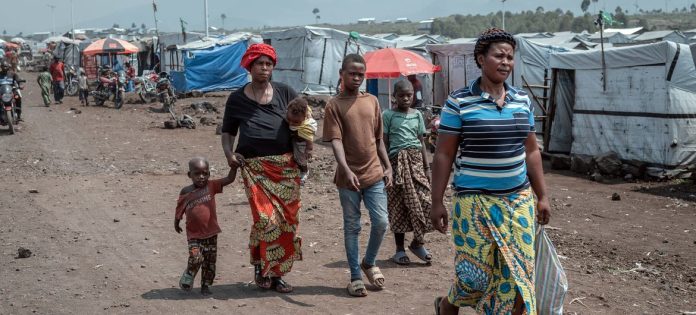Concerns raised over potential attack on Goma by the M23 armed group in the eastern Democratic Republic of Congo have sparked alarm. Ravina Shamdasani, spokesperson for the UN human rights office, OHCHR, expressed fears of catastrophic consequences for civilians in the event of an attack, emphasizing the heightened risk of human rights violations and abuses.
Shamdasani also emphasized the prevalence of sexual violence in the conflict, with armed groups perpetrating acts of sexual slavery, abduction, and murder against women and girls.
Following the withdrawal of the UN peacekeeping Mission, MONUSCO, from South Kivu in June 2024, clashes between the M23, Congolese Armed Forces, and other armed groups have continued in North Kivu, particularly in Goma and Sake.
Thousands newly displaced
As the humanitarian crisis worsens, with over 400,000 people displaced in North and South Kivu this year, UNHCR has reported bombings on camps in South and North Kivu, resulting in casualties and destruction of shelters.
Continuous bombardments have forced families to flee displacement sites near Goma, seeking refuge within the city, where UNHCR staff are providing assistance despite challenging conditions.
Guterres’ warning
UN Secretary-General António Guterres expressed alarm over the M23 rebels’ offensive in eastern DRC, urging them to cease hostilities and abide by the ceasefire agreement. The reported seizure of Sake by the rebels has heightened the threat to Goma, raising concerns of a regional conflict.
OHCHR spokesperson Shamdasani echoed the Secretary-General’s call for an immediate cessation of hostilities, emphasizing the need for countries to end support to armed groups in the DRC to prevent further escalation of violence.
Challenges in camps
UNHCR highlighted the stark options faced by civilians in camps, with limited aid and access to essential services due to occupation by armed groups. The provinces of South and North Kivu already host millions of internally displaced people, facing increased human rights violations and precarious conditions.
Amidst overcrowded hospitals and limited access to necessities, vulnerable populations in the conflict-affected regions are at risk of further suffering without immediate intervention.




